As the election season approaches, we look to key politicians’ historical positions on mining and conservation impacting places like the Boundary Waters Canoe Area Wilderness (BWCAW). Environmental groups urge voters to support lawmakers who would advocate for continued protection. As of 2023, there is a 20-year ban that prevents mineral and geothermal leasing near the wilderness. However, some lawmakers are trying to lift that restriction.
Overview of the issue
Mining companies are seeking to establish sulfide-ore mining leases near the Boundary Waters Canoe Area Wilderness and Superior National Forest. Companies such as Twin Metals Minnesota claim this will boost the economy while ensuring safe, clean, and responsible mining practices. However, environmental advocacy groups such as Save the Boundary Waters and Friends of the Boundary Waters argue that recreational activities and tourism offer more sustainable long-term economic benefits. They point out that mining companies have a poor track record on mining practices and cleanup. They contend that exposing elements like sulfates to water and air deposits toxins into the surrounding water, negatively impacting human health and the ecosystem.
In 2012, Twin Metals Mining, part of Chilean company Antofagasta, purchased old mining leases to build a sulfide-ore copper mine just five miles from the southern edge of the BWCAW. But by 2016, the USFS concluded that a mine would likely cause irreversible damage. Since then, Twin Metals has continued to express interest in the opportunity. The mine would abut Birch Lake and the South Kawishiwi River watersheds.
Additionally, PolyMet, a subsidiary of the Swiss-owned mining company Glencore, plans to develop a large mining operation between Lake Superior and the BWCAW. Wilderness advocates state that this “mega-mine” could potentially harm both watersheds.
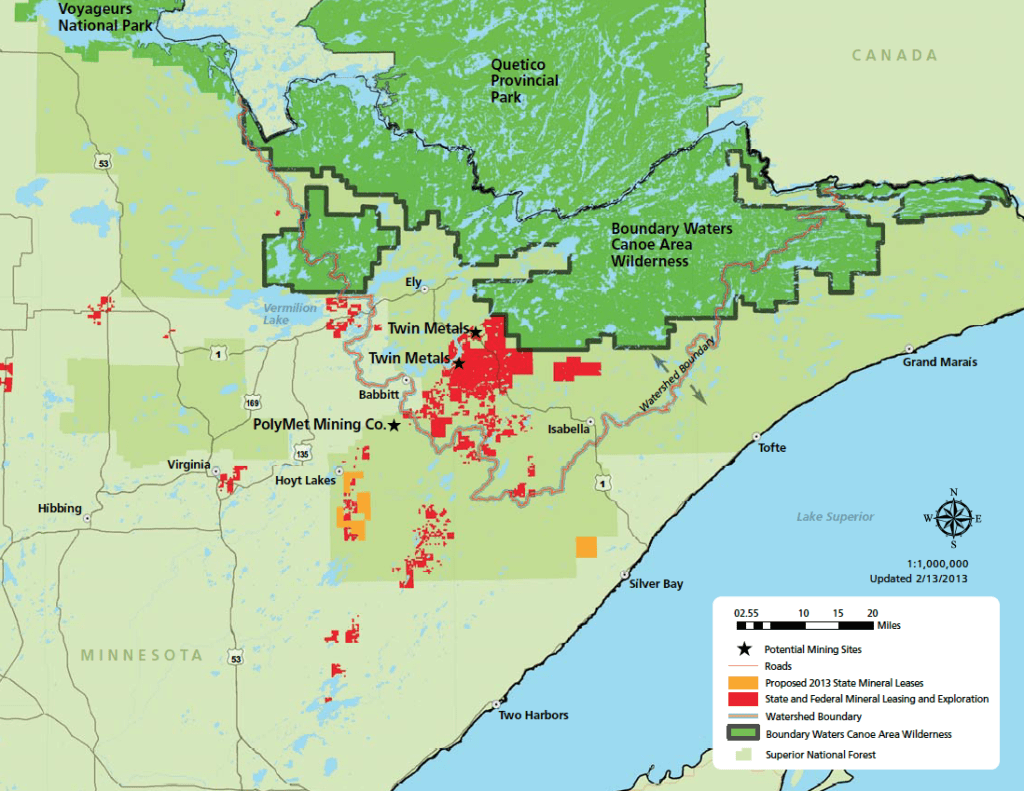
20-year ban on sulfide-ore mining leases
In 2023, under the Biden-Harris administration, Secretary of the Interior Deb Haaland signed Public Land Order 7917, which provides full protection from mining to preserve natural and cultural resources. This order protects 225,504 acres in the Superior National Forest, along with the adjoining Mining Protection Area and the 1854 Ceded Territory.
In July, she told the Huff Post, “I wholeheartedly endorse Kamala Harris as our next President of the United States.” She emphasized that it was a statement of her own and not as secretary.
As a U.S. senator, Harris co-sponsored the Green New Deal and communicated a strong commitment to clean energy. She also notes that the United States must urgently address climate-related challenges. However, she has not made any recent comments on the issue related to sulfide mining in northern Minnesota.
E&E News reported that during a rally in St. Cloud this year, Republican presidential nominee Donald Trump stated his intention to reverse the 20-year ban. “Tonight, I pledge to Minnesota miners that when I am reelected, I will reverse the Biden-Harris attack on your way of life, and we will turn the Iron Range into a mineral powerhouse like never before,” Trump stated.
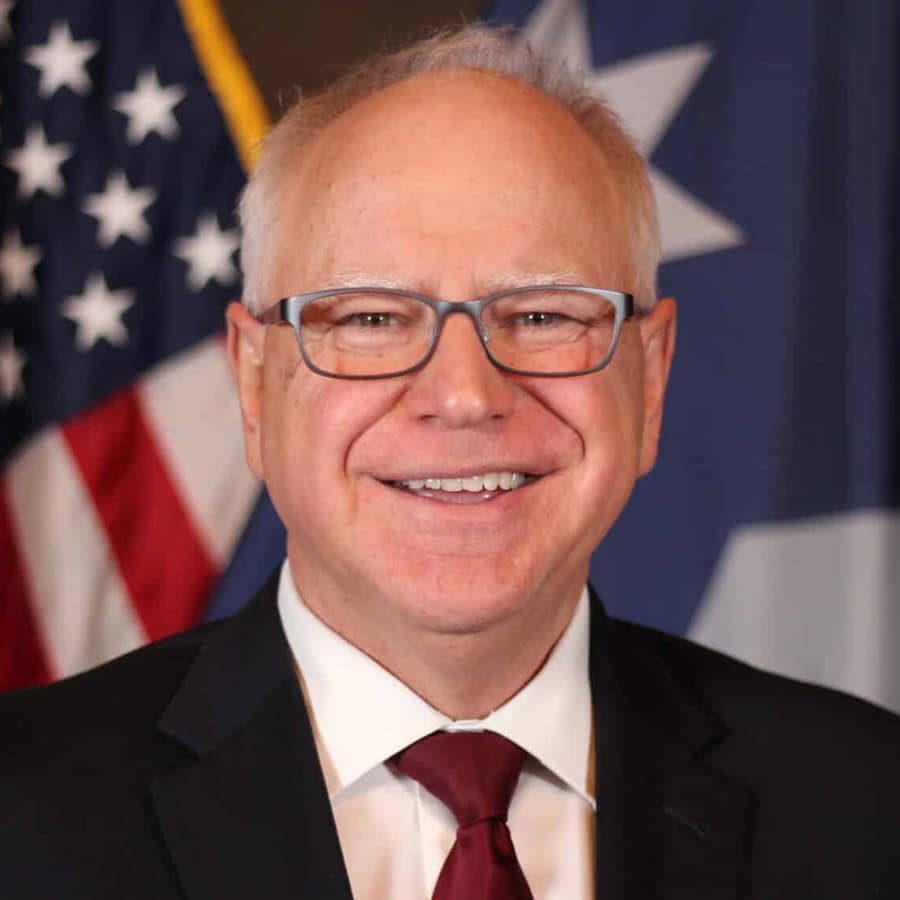
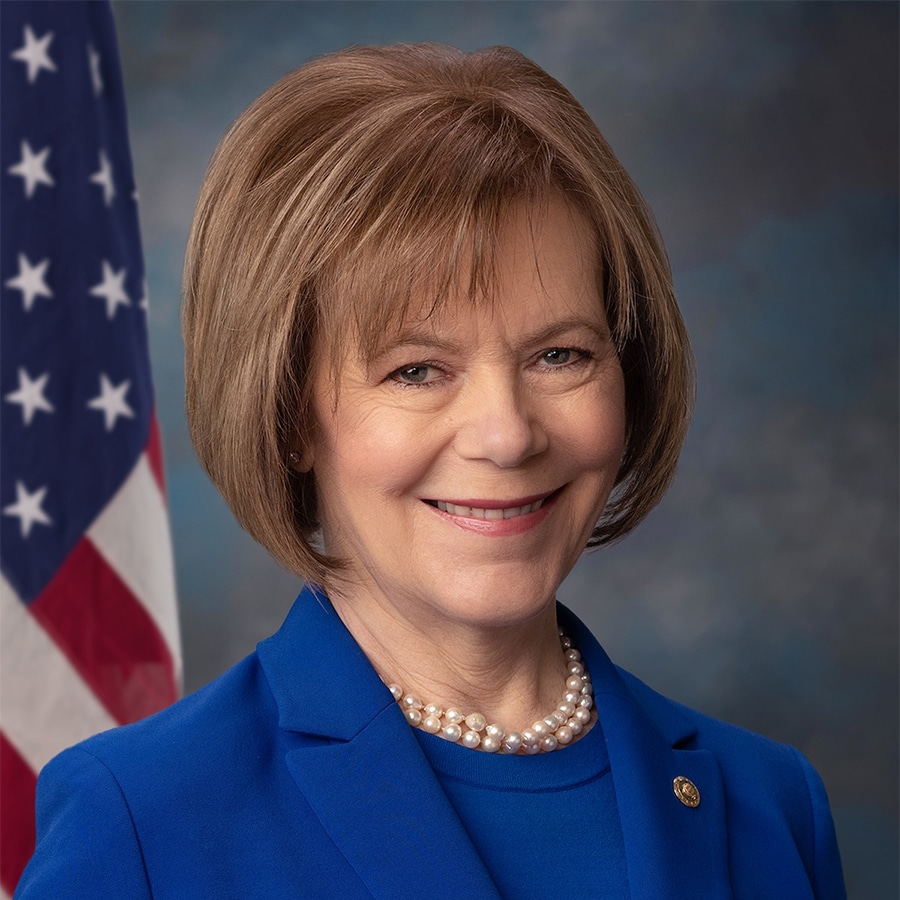
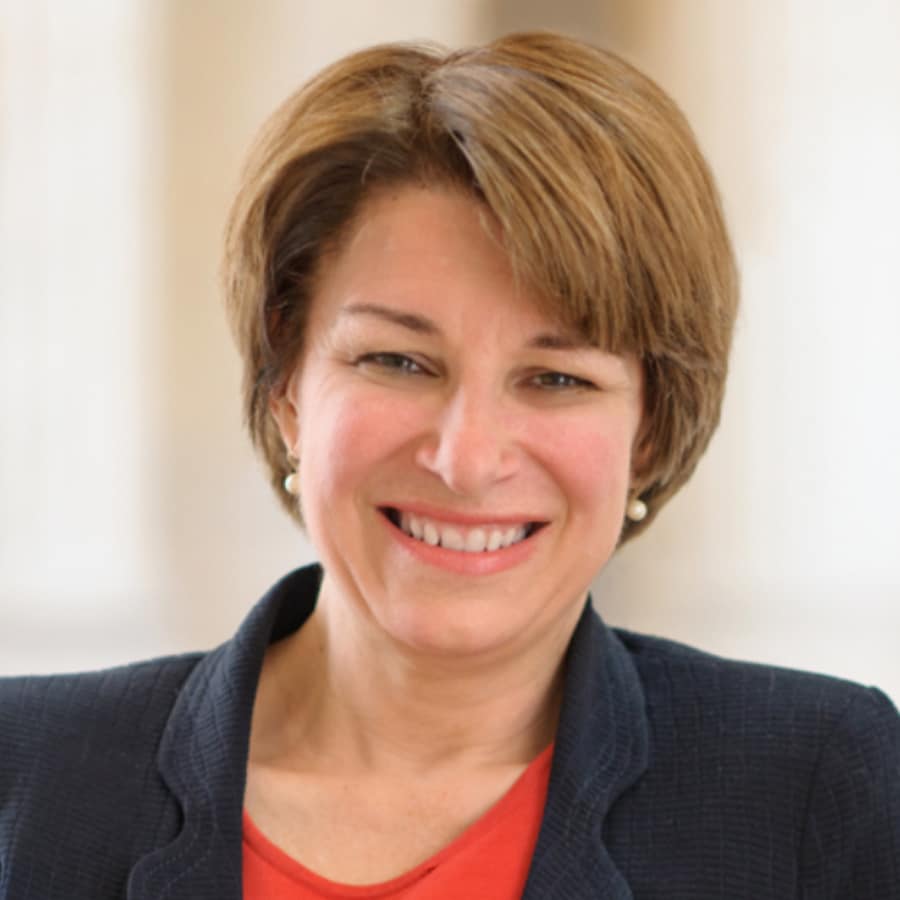
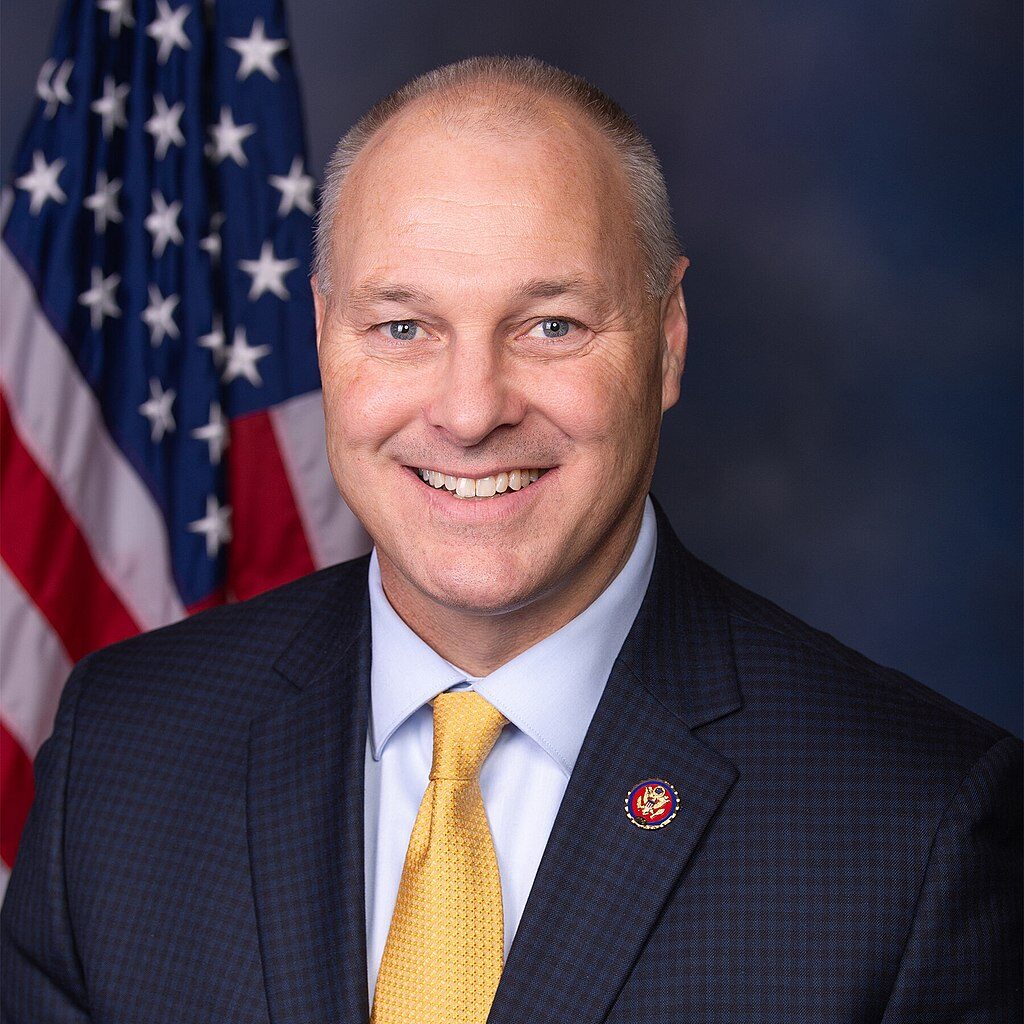
Minnesota’s Governor Walz stance on mining
Recently, Minnesota Governor Tim Walz has gained attention as Democratic Vice President Kamala Harris’s pick for running mate. He has indicated a supportive stance toward mining projects, provided studies demonstrate they can be conducted responsibly near the wilderness. In a 2022 interview with Northern News Now, Walz stated, “I would support future environmental impact studies to see if such mining could be done safely, but I didn’t say I support the project.” The article noted that Walz appears to favor federal regulations to govern copper-nickel mining proposals.
Furthermore, in 2019, when asked about his stance on PolyMet and Twin Metals Mining, he told MinnPost, “I understand I accept the responsibility as a state governor to get this done right. I do support the responsible usage of minerals, especially those that will lead us to a clean energy economy. But I approach each of these [companies] individually, and I believe you must conduct a risk analysis to determine if it can be done safely.”
State representatives are divided
In August, Senator Tina Smith (D-MN) made her stance clear. “The Boundary Waters are some of the cleanest waters on earth. They’re one of America’s greatest wilderness areas, and people everywhere cherish them. I support mining, but not here,” she posted to X (formerly Twitter).
However, Senator Amy Klobuchar (D-MN), whose roots are in Minnesota’s iron range, seems to be a supporter of at least PolyMet. In 2022, she said that she wanted to see the results of the Forest Service’s study on copper-sulfide mining before deciding on supporting legislation. Since then, she has been unclear in her stance, though her opponents believe she is pro-copper-sulfide mining.
Representative Pete Stauber (R-MN) has consistently supported legislation that would reverse the 20-year ban on mining near the BWCAW. This past spring he attached five amendments to the National Defense Authorization Act that would reverse the ban. While four of those amendments were defeated, one remains under review.
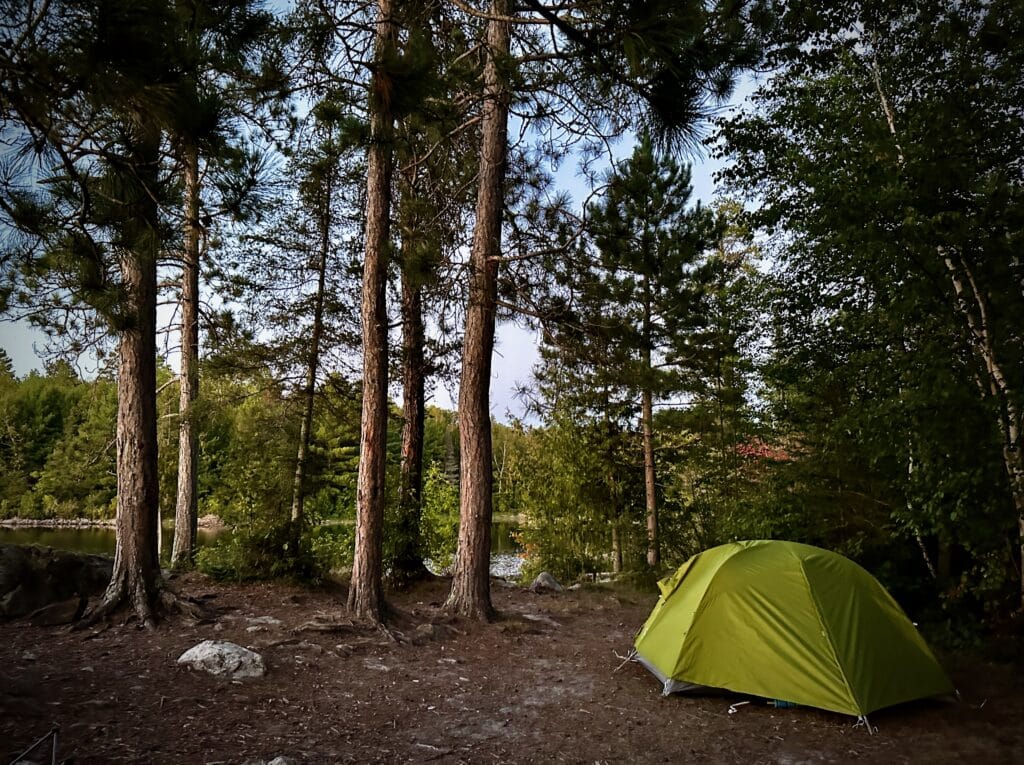
Ongoing conservation efforts
Environmental groups such as Save the Boundary Waters and Friends of the Boundary Waters both advocate for wilderness protection. Save the Boundary Waters opposes any copper-sulfide mining near the wilderness. In 2021, Friends of the Boundary Waters submitted a Prove it First bill in which they advocate for independent proof that a similar mine has operated for a decade without causing pollution.
Becky Rom, a retired attorney and activist for permanent wilderness protection states that “studies show a Twin Metals mine near the wilderness would produce an insignificant quantity of metals needed for clean energy, such as nickel and cobalt. Copper is abundant throughout the world.”
On the sulfide mining issue, Chris Knopf, executive director of Friends of the Boundary Waters, told Politico, “He [Governor Walz] has actively supported the environment in many areas, but in this case, he has stepped back.”
According to a Star Tribune poll in 2020, the last election year, Minnesota voters overwhelmingly opposed mining near the BWCAW.
Stay up-to-date on proposed mining projects near the BWCAW and Superior National Forest, including the latest updates on Twin Metals and PolyMet, permitting status, court challenges, and possible threats to the north woods environment, communities, air and water quality.
More info:
- Biden-Harris Administration Protects Boundary Waters Area Watershed – U.S. Department of the Interior
- Candidate finder – Office of the Minnesota Secretary of State
- A look at Gov. Tim Walz’s stance on copper-nickel mining over the years – Northern News Now
- Q&A with Gov. Tim Walz on PolyMet, Twin Metals and the DFL’s mining rift – MinnPost

Wilderness guide and outdoorswoman Pam Wright has been exploring wild places since her youth. Remaining curious, she has navigated remote lakes in Canada by canoe, backpacked some of the highest mountains in the Sierra Nevada, and completed a thru-hike of the Superior Hiking Trail. Her professional roles include working as a wilderness guide in northern Minnesota and providing online education for outdoor enthusiasts.

